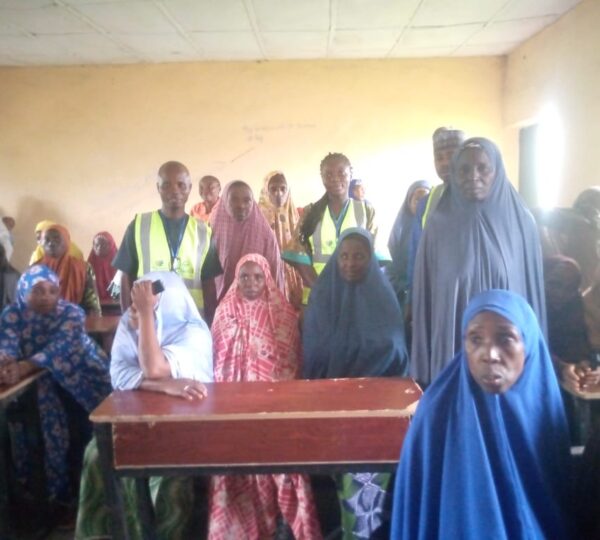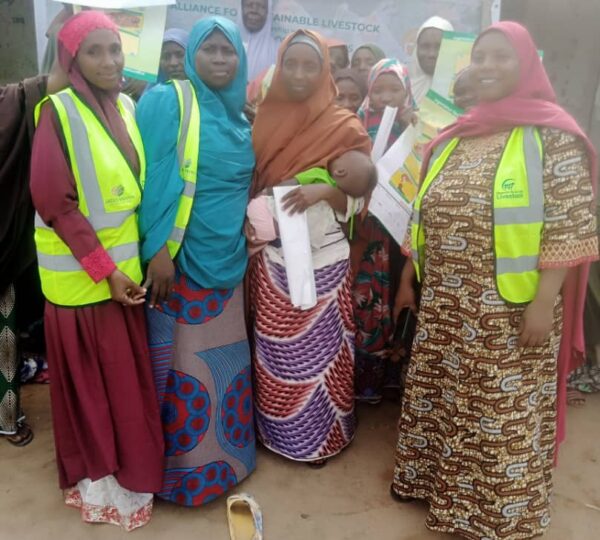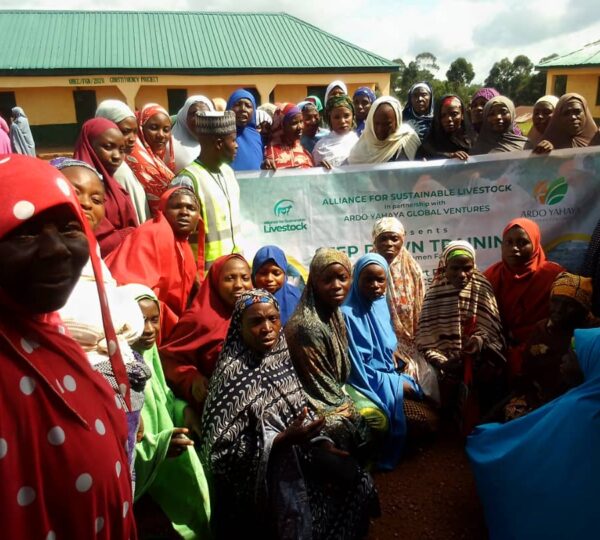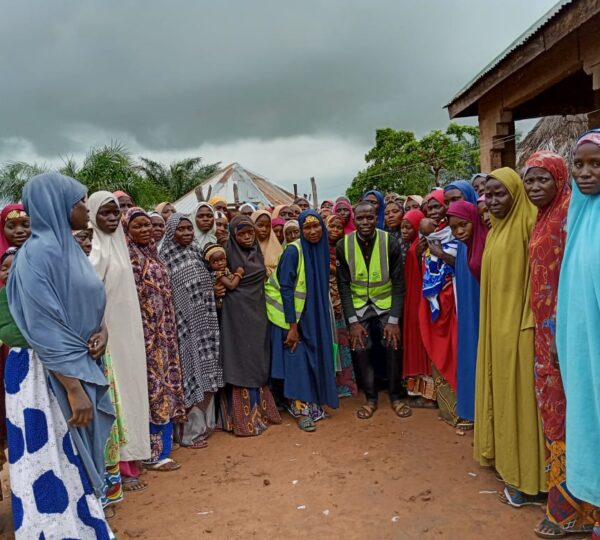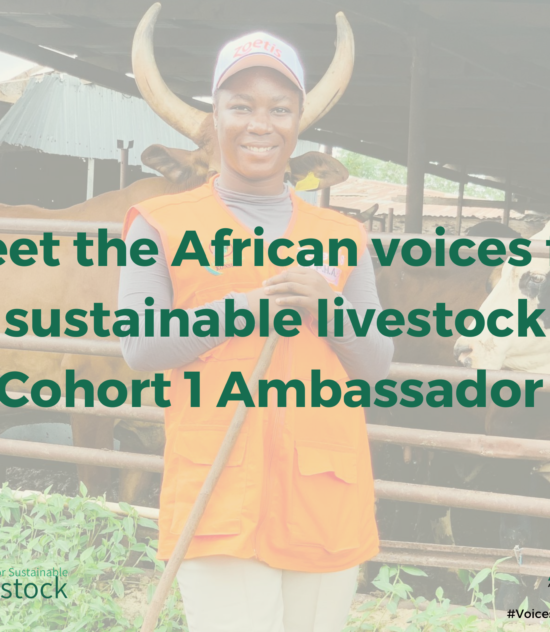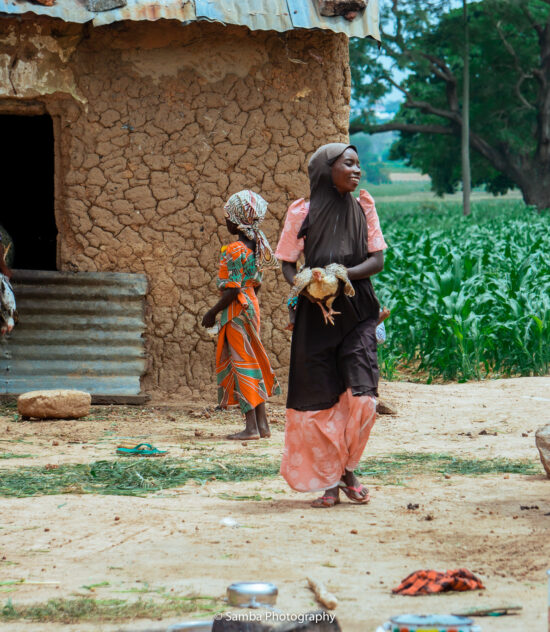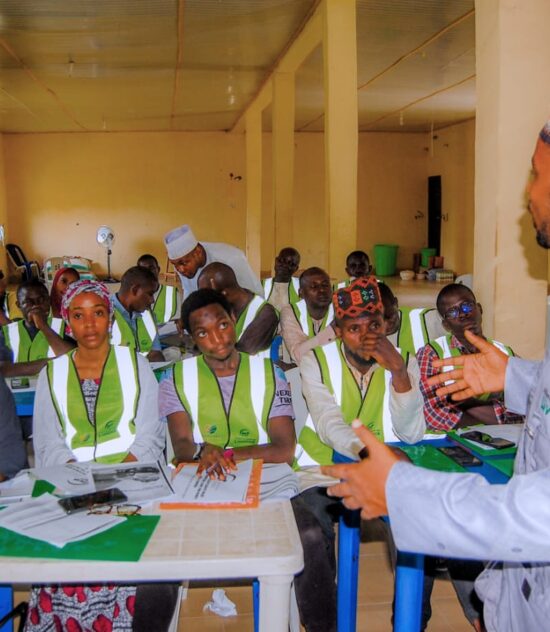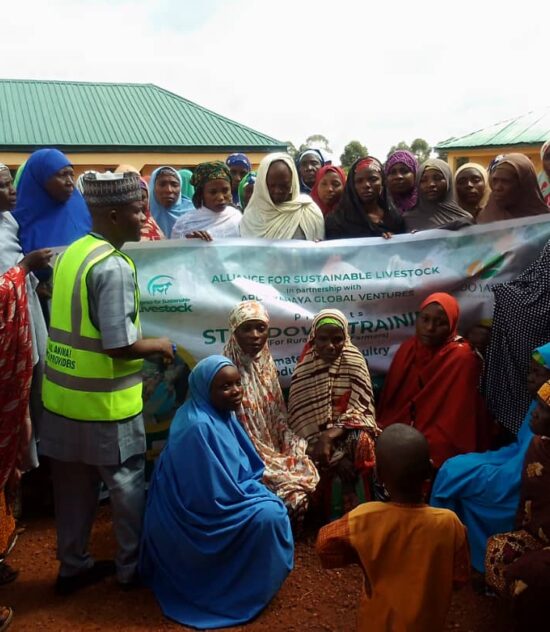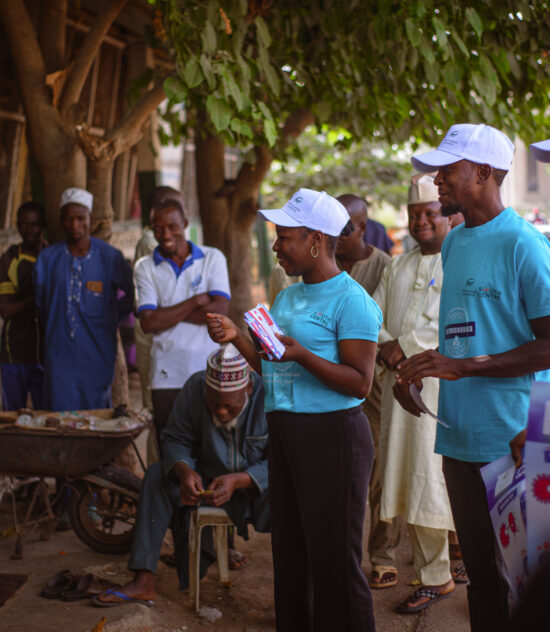Climate Smart Poultry Production (CSPP) Intervention in Taraba State
Training
Scaling up our work on Local chicken improved Production, We work with implementing partners in Taraba state to train rural smallholder local chicken farmers who are women. The model for this training is a training of trainers model where the implementing partners recruit extension agents and Veterinary Paraprofessionals based in the selected locations. Using our carefully structured modules, Our trainer trained the trainers to visit communities with women rearing chickens and step down the training to them. With our extension agents, we have trained over 4,000 women and helped create access to last-mile vaccine access using the extension agents while also supporting vaccine distributors in the state.
- 15,000 Farmer’s households supported
- 5000 women trained
- 500 community-based animal health workers trained
Our project hence focused on building the capacity of CAHWs on antimicrobial resistance and the role they play in its prevention and awareness.
After the capacity-building session, the CAHWs now understand their crucial roles in preventing AMR and have become advocates for positive change in their communities.
Our CAHWs, spanning 19 communities in Kaduna state, then began step-down rural community advocacy, spreading vital information about AMR among livestock farmers, community leaders, and other residents.
They championed antimicrobial stewardship by promoting responsible antimicrobial use, educating farmers on AMR prevention, and stressing the importance of strictly adhering to antibiotic withdrawal periods in animals.
This initiative is remarkable as our CAHWs are creating ripples of positive behavioral change that prioritizes antimicrobial stewardship among smallholder farmers, who play a significant role in the production of healthy animals, to ensure the sustainability of the livestock sub-sector.
With support from the South Centre, Geneva, ASL has provided essential educational materials, including posters and pamphlets with informative content on prevention, available in English and transcribed in Hausa—the predominant language in these communities.

